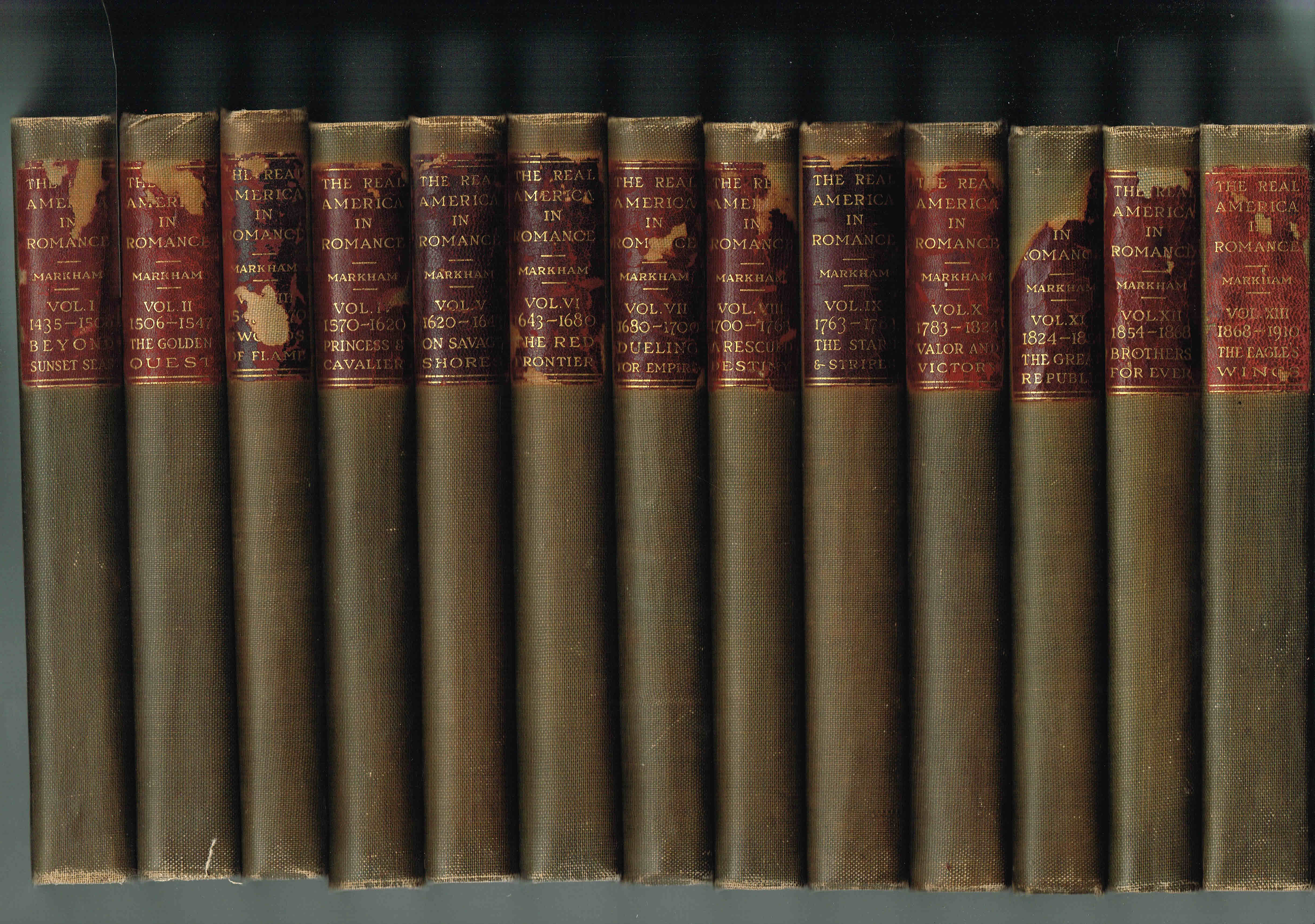Book Collecting Guide
Caring for your Book Collection - Basic Tips from a Professional Bookseller

When handling an old book: Cup your hand in a V-shape and rest the book in that hand, enough so you can examine the book . . . but not so wide to cause damage to the binding, such as cracking the hinges or joints.
When pulling a book off the shelf, remove the book by pulling it from its mid or upper spine, not from placing your finger at the top of the spine (backstrip), and pulling it off the shelf. You can damage the top of the spine or the book’s headband, a decorative band (silk, cotton, etc.) found at the top and sometimes the bottom of the spine.
Don’t keep paper items in books, such as newspaper clippings, greeting cards, Post-it NotesX, or a bookmark (sitting in a book for years). The same applies to paperclips, pens and pencils, tree leaves (very common practice in early America), photographs, and currency. They can leave permanent marks in books and cause offsetting to pages.
Handle a book with a dustjacket (paper cover) delicately, since a torn or damaged dustjacket can affect the price of the book. For scarce, uncommon, or rare books, their dustjackets can increase the price several hundred dollars — even thousands for scarce books rarely seen with their original dustjackets. Advice: If you plan to give a book as a gift, don’t clip the price from its dustjacket. You’re ruining a key part of the book. Note: Although dustjackets were on a book published as early as 1833 in America, they became more common during the 1880s.
File books on nonporous shelving. Uncoated wood shelving can absorb moisture. Be cautious when using painted shelving or wood finishing and cleaning compounds, since they could bleed onto your books. Shelves of metal, glass, or other nonporous finishes are a better choice. Store books away from the wall, so air can circulate and books can breathe.
Store books in an upright position. Books leaning can eventually cause cocking or slanting/tilting of their bindings. Ideally, file books by size. Tall books should lay flat on the shelf. Don’t shelve books too tightly, which can cause rubbed marks or tears to the dustjackets or bindings when you remove and reshelf.
Keep books in climate-controlled rooms or areas. Humidity/moisture is the enemy of paper. Books should not be exposed to major swings in temperatures throughout the year. Don’t store books in damp, musty basements, attics, and garages. Don’t store books in enclosed plastic containers, cardboard boxes, or wooden containers. Avoid storing books next to windows, fluorescent lamps, or high-heat light bulbs, since sunlight and artificial lighting can cause fading to dustjackets and bindings. Dust your books and shelving periodically (at least the top edges of the books), or use a low-powered hand-held vacuum.
In short, take care of yourself, take care of your books.
© 2020 R. Siedlecki Vintage Books, an online and direct sales business located in Alpharetta/Roswell, Georgia. Established 1991. Reprinted with permission. Shop their inventory on Biblio!
